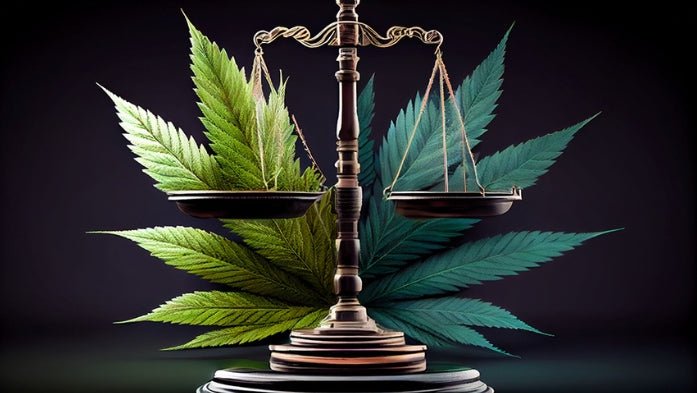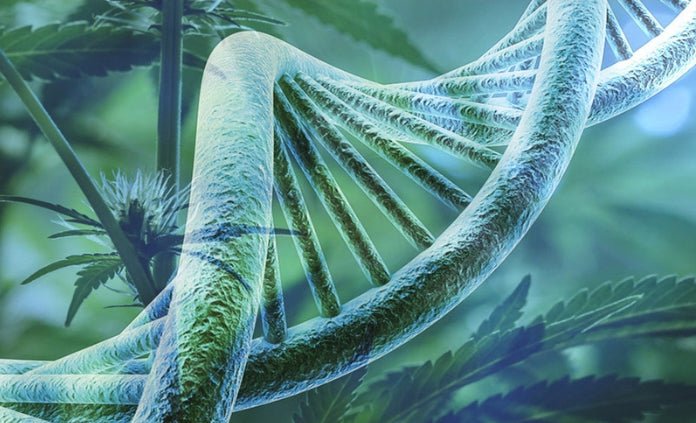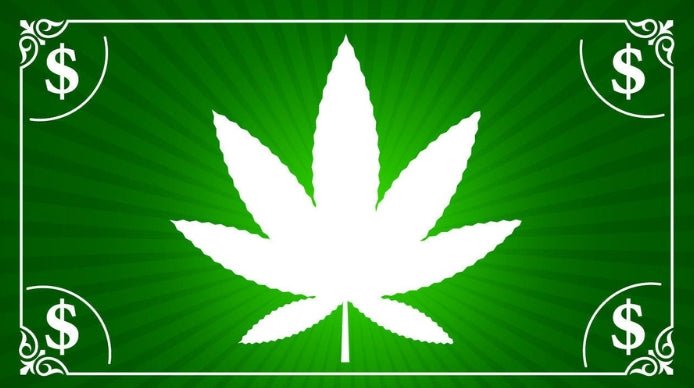The ruling is just the latest in a series of legal battles over the hemp-derived cannabinoid taking place across the country.

It is still legal to market and sell products containing the embattled delta-8 THC hemp variant in Texas, for now. According to multiple media outlets, the 3rd Court of Appeals in the Lone Star state upheld an injunction halting the ban on delta-8 items last week.
The ruling comes after an almost two-year battle between the Texas Department of State Health Services (DSHS) and the legal hemp industry in Texas. Following the passage of the 2018 Farm Bill, hemp was removed from the Controlled Substances List. With that new designation, farmers could once again cultivate hemp as a legal agricultural product, and manufacturers could begin to create and sell products containing hemp-derived THC, including delta-8.
That seemingly innocuous change has led to a firestorm of legal, political and economic fights in numerous states as health officials and law enforcement try to corral the predominantly unregulated and misunderstood hemp market. Beginning in 2021, the DSHS updated its website to include a statement listing delta-8 and other THC isomers as Schedule I controlled substances, leading to a flurry of panic among hemp manufacturers and retailers nationwide.
In response to the department's somewhat legally dubious move, a company known as Hometown Hero CBD sued the DSHS over the ban. As a result of the lawsuit, the court issued an injunction in November 2021 to stop the prohibition by state officials. That legal chess move prompted the DSHS to appeal the decision to the Texas 3rd Court of Appeals, where it lingered in limbo until September 5, when the court gave both sides 20 minutes each to make their case before the judges.
Finally, on September 28, the Appeals Court ruled in favor of Hometown Hero CBD, allowing the injunction to remain in effect.
Following the decision, the company said, "As we celebrate this significant court decision, we are thankful for our industry partners who have joined us in the ongoing fight to stop unlawful bans of delta-8 and other hemp-derived cannabinoids not only in Texas but across the country."
"As we celebrate this significant court decision, we are thankful for our industry partners who have joined us in the ongoing fight to stop unlawful bans of delta-8 and other hemp-derived cannabinoids not only in Texas but across the country."
- Statement from Hometown Hero CBD
The next step for the state would be to take the case all the way to the Texas Supreme Court. However, industry advocates and insiders do not think that outcome is likely. Jesse Williams, a writer for Texas Cannabis Collective, a Fort Worth-based cannabis news site, believes there are three reasons why that won't happen.
First, in cases like this, the state usually appeals the decision immediately. However, that did not occur following the Appeals Court ruling. Second, the Texas Supreme Court already made a decision not to uphold the ban in another stage of the lawsuit. Finally, and perhaps most importantly, Tony Buzbee, the attorney who represented Texas Attorney General Ken Paxton in his high-profile impeachment trial, happens to own a hemp business that sells delta-8 infused seltzer beverages.
Williams points out, "It would be really odd for Paxton to have his office work against his attorney."
"It would be really odd for Paxton to have his office work against his attorney."
- Jesse Williams, Writer for Texas Cannabis Collective
The Texas ruling comes on the heels of a similar case and outcome in the state of Arkansas, where in September, a federal judge issued an order blocking the enforcement of a new law to ban the sale of the intoxicating hemp-derived variants.
In that case, Judge Billy Roy Wilson stated that while the state can enact restrictive measures on the cultivation and production of hemp and hemp products, limiting or inhibiting the transportation of those items violates federal law. He also pointed out the erratic nature of the legislation, where lawmakers seemed to "keep the parts of the program it likes (purely industrial uses) and eliminate the parts it doesn't (human consumption)."
The issue is also currently being debated on Capitol Hill as lawmakers craft the pending provisions and details of the much-anticipated and vital 2023 Farm Bill. Industry advocates and stakeholders hope Congressional leaders do not cave into the small number of loud voices emanating primarily from the corporate cannabis lobby that seeks to eradicate the hemp industry and hoard the entire THC market.
Regardless, battle lines have been drawn, and a massive amount of money and thousands of businesses and livelihoods are at stake as politicians and lawyers attempt to draft legislation to properly and fairly regulate the still-young and fragile hemp industry. For now, the law appears to be on the side of the hemp supporters. However, laws can always change. And if this one is modified or eliminated to the detriment of the hemp-based market sector, the effects could be far-reaching and devastating.








































